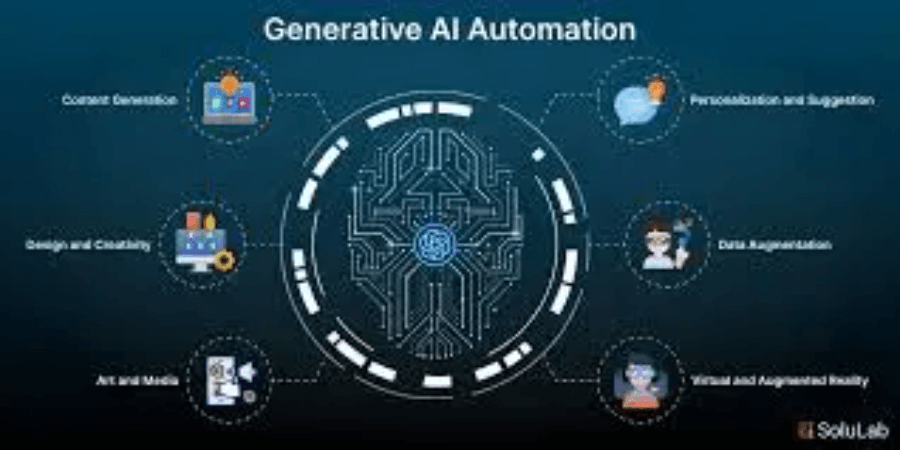Physical Address
304 North Cardinal St.
Dorchester Center, MA 02124


Artificial intelligence (AI) is rapidly transforming the world around us, and one of its most significant applications is in automation. AI-powered automation is revolutionizing industries, from manufacturing and logistics to healthcare and finance. This exploration will delve into how AI is driving automation, its benefits, and what it means for the future of work, focusing on the transformative power of AI automation.
AI-powered automation combines the power of artificial intelligence with traditional automation technologies. AI algorithms enable machines and systems to learn, adapt, and make decisions without human intervention, taking automation to a whole new level of sophistication. This intelligent automation is changing how businesses operate and how we interact with technology.
AI is the engine behind this new wave of automation, powering it through several key technologies:
Machine learning algorithms allow machines to learn from data and improve their performance over time, enabling them to automate complex tasks that previously required human intelligence. This is a core component of AI automation, allowing systems to adapt and optimize processes.
NLP enables machines to understand and process human language, allowing for automation of tasks like customer service, data entry, and even content creation. NLP is crucial for AI automation to interact naturally with humans.
Computer vision allows machines to “see” and interpret images and videos, enabling automation of tasks like quality control, object recognition, and even medical diagnosis. This technology expands the scope of what AI automation can accomplish.
AI-powered robots can perform a wide range of tasks, from manufacturing and assembly to healthcare and logistics. These robots are becoming increasingly sophisticated and capable of complex actions, driven by AI automation.
The impact of AI automation is being felt across a wide range of sectors:
AI-powered robots are automating assembly lines, improving efficiency, and reducing costs. AI automation is streamlining manufacturing processes and improving product quality.
AI is optimizing supply chains, automating warehouse operations, and improving delivery efficiency. AI automation is revolutionizing logistics, making it faster and more efficient.
AI is being used for medical diagnosis, drug discovery, personalized medicine, and automating administrative tasks. AI automation is transforming healthcare, leading to better patient outcomes.
AI is used for fraud detection, risk management, algorithmic trading, and automating customer service. AI automation is making financial systems more secure and efficient.
AI-powered chatbots are providing 24/7 customer support, answering questions, and resolving issues. AI automation is improving customer service and making it more accessible.
AI is personalizing shopping experiences, optimizing inventory management, and automating checkout processes. AI automation is enhancing the retail experience for both businesses and consumers.
The adoption of AI automation brings numerous advantages:
AI-powered systems can perform tasks faster and more accurately than humans, leading to increased efficiency and productivity.
Automation can reduce labor costs and optimize resource utilization.
AI algorithms can minimize errors and improve the accuracy of tasks.
Automation frees up human workers to focus on more complex and creative tasks.
AI-powered systems can operate 24/7 without the need for breaks or rest.
The rise of AI-powered automation raises concerns about job displacement. While some jobs will undoubtedly be affected, AI is also creating new opportunities in areas like AI development, data science, and robotics. The key is to adapt and prepare for the changing landscape of work by investing in education and training programs that focus on skills that are in demand. The future of work will likely involve humans and AI working together, leveraging the strengths of each.
The widespread adoption of AI automation presents some challenges that need to be addressed:
It’s crucial to address the ethical implications of AI, ensuring that AI systems are used responsibly and fairly.
We need to support workers who may be displaced by automation and provide them with opportunities to acquire new skills.
Protecting data privacy is essential as AI systems rely on vast amounts of data.
The future of work will likely involve a collaboration between humans and AI. By working together, we can leverage the strengths of both humans and AI to create a more productive and innovative future. This symbiotic relationship will be key to unlocking the full potential of AI automation.
AI-powered automation is transforming industries in profound ways. By embracing this technology responsibly and addressing the challenges proactively, we can unlock its immense potential to create a better future for all. The ongoing development and refinement of AI automation will continue to shape our world.
What industry do you think will be most impacted by AI-powered automation? Share your thoughts in the comments below! Let’s discuss the future of AI automation together.
